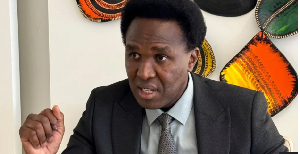Pundits from international finance institutions have put forward a tall checklist of requirements that should set the criterion in the search for an individual to occupy one of Ghana’s most highly-ranked and influential positions, the Governor of the central bank.
An attempt by this paper to sample opinions from experts within avowed policy institutions in the country as to which individual from a list of probables could be the most suitable has revealed that, the search for the chief monetary policy handler would have to be carefully executed to avoid disastrous results.
Most of the experts, whose names cannot be mentioned for obvious considerations, insisted that the current economic situation in the country and the state of the global economy necessitated a search beyond the dictates of political forethought.
A requirement that kept running through the responses was the call for a candidate who has been an accomplished economist, a macroeconomist at that, with a sound understanding of economic policy issues.
Experience in a previous economic policy position was also cited as a must, and the person is expected to be somebody whose position allowed him to influence policy, analyse, the after-effects and to help chart the course for further policy directions.
Another requirement that was most mentioned is the need to search for an individual who could remain calm under most difficult situations, and whose decisions would be well measured and calculated.
A Chief Economist with one of the UN agencies insisted that, there is no time for experimentation under current circumstances and therefore called on the Presidency to look out for an individual who has a firm grasp of the issues at hand.
“In view of the international stature of the central bank, the new Governor should have much international exposure, and he should be one whose experience spans dealings with international monetary institutions such as the African Development Bank (AfDB), the IMF and the World Bank”, he pointed out.
According to the Chief Economist, other qualities that come up on the list of expectations from the new governor include the need to settle on an individual who has the ability to manage people.
“As a growing institution with over 1500 employees, and with supervisory responsibilities over a growing number of financial institutions, the Bank of Ghana (BoG) is indeed a giant institution that requires a good manager of persons, a person with good inter-personal relations, and a balanced measure of business acumen to forestall internal wrangling whilst insisting on economic prudence”, he said.
He further pointed out that the position of the new Governor required more muscle than what accomplished educationists, bankers, investment bankers, statisticians and finance bosses whose names have in recent times propped up could offer, adding that, “there is the need to cast the net wider”.
“There should be a coordinated search for some one who can match the quality of the current governor, and who can better meet the challenges of today, if not, we can’t stand the heat of the global economic downturn” said an experienced Ghanaian banker who also spoke to this paper on the subject.
The lobbyists are said to be up to task, but it was the hope of most people this paper has spoken to that H.E President John Evans Atta Mills would be guided by similar principles that have been evident in his insistence on excellence, rather than party loyalty in the selection of his crop of state officials so far.
The current governor has been able to put in place a number of polices which have changed monetary policy direction in the country. Dr Paul Acquah is a graduate of the University of Ghana and Yale University, majoring in Economics. He obtained a PhD at the University of Pennsylvania, USA and joined the IMF as a young economist.
Rising through the ranks, he eventually became deputy director for the Africa Department in 1998 before joining the bank of Ghana as Governor. He and his technocratic team have been lauded for the relative stability of the local currency and the establishment of a strong and independent banking system.
Even though prevailing high borrowing rates have often been cited as a shortfall for the outgoing team, the situation has been described by many as typical in an environment of high inflationary expectations, with the level of operational efficiency of the country’s banks also being a major factor.
The new governor would have the major responsibility of ensuring that the country’s economy progresses from stability to growth.
Many financial experts are of the view that, the country’s financial sector would chalk another feat if the current governor is maintained despite the change in government and the differences in ideology. This would be the first in the country’s economic history and it would ensure continuity in a number of policy initiatives by the central bank in recent times that appear to be working.
Business News of Friday, 20 February 2009
Source: Financial Intelligence
















